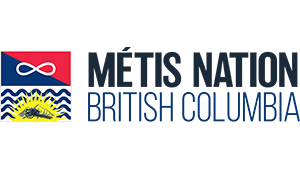Métis Nation British Columbia (MNBC) has started a Judicial Review against the Minister of Indigenous Services to exercise jurisdiction over Métis child and family services. Canada is denying MNBC an opportunity to design and deliver child and family service solutions that best suit the needs of Métis kids in BC, saying MNBC does not qualify as an "Indigenous governing body”.
Canada’s approach means Métis children and families will continue to be part of a colonial child welfare system, perpetuating the harms of residential schools and the 60s Scoop.
What is an Indigenous Governing Body?
An Indigenous governing body is a council, government or other entity that is authorized to act on behalf of an Indigenous group, community or people that holds rights recognized and affirmed by section 35 of the Constitution Act, 1982.
Background
Bill C-92: An Act respecting First Nations, Inuit and Métis children, youth and families.
The act was co-developed with Indigenous, provincial, and territorial partners.
- It affirms the right of Métis peoples to exercise jurisdiction over child and family services.
- It establishes national principles such as the best interests of the child, cultural continuity, and substantive equality.
- It contributes to the implementation of the United Nations Declaration on the Rights of Indigenous Peoples (“UNDRIP”).
- It provides an opportunity for Indigenous peoples to choose their own solutions for their children and families.
On June 21, 2019, the Act became an official law, and on January 1, 2020, its provisions came into force.
On February 14, 2020, we told the governments of Canada and British Columbia that we intended to exercise jurisdiction over child and family services under the law.
More than 2 years later, Canada denied our request saying, “the Métis Nation of British Columbia does not meet the requirements to be considered an Indigenous governing body.”
Canada also rejected our request to access capacity funding for rights-holding Indigenous groups, communities, organizations, or governments that want to take back control of child and family services for their children.
MNBC Position
We strongly disagree with Canada’s position. We believe that MNBC has the right to exercise jurisdiction over child and family services for Métis kids as the democratically elected government of the Métis Nation within British Columbia.
MNBC represents the section 35 rights of over 23,000 Métis citizens who are registered with MNBC and advocates for the over 98,000 self-identified Métis in British Columbia.
Canada’s position is a slap in the face. Canada has already recognized MNBC’s role in child and family services including through:
The Canada-Métis Nation Accord
Through the Canada-Métis Nation Accord, the MNBC and Canada agreed to the objective of ending the legacy of colonialism and colonial attitudes wherever they remain in federal legislation, policies, and practices. Through the accord, Canada and MNBC identified child and family services as an area of focus.
Memorandum of Understanding on Advancing Reconciliation
The Memorandum of Understanding on Advancing Reconciliation committed Canada to renewing and strengthening a nation-to-nation and government-to-government relationship with MNBC. The MOU affirms Canada’s nation-to-nation and government-to-government relationship with MNBC and specifically lists “Children and Families” as a priority.
The Canada-Métis Nation Child and Family Services MOU (“CFS MOU”)
The CFS MOU says that, in order to advance the goal of Métis jurisdiction over the design and delivery of child and family services, Canada and the Métis Nation (including MNBC) will work toward “more equitable, responsive and effective child and family services for and by the Métis Nation” and its member governments.
MNBC will always fight to defend Métis children and families against the colonial attitudes of Canada, and we will always advocate for the rights and self-determination of MNBC citizens.
Media Contact:
Russell Brewer
604-578-8190
